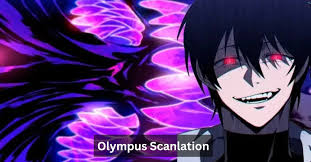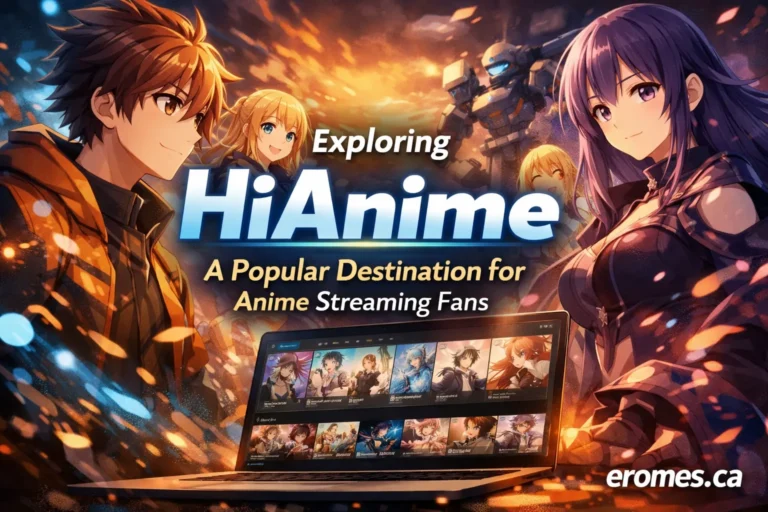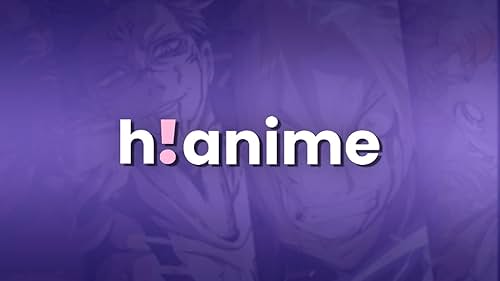
[ad_1]
In the ever-evolving landscape of fandom and community, Olympus Scanlation stands as a prime example of how enthusiasts can transition from mere fans to active contributors. Focusing on manga and webtoons, Olympus Scanlation not only illustrates the potential of fan-driven projects but also showcases a unique community-building dynamic. This article delves into the impact of Olympus Scanlation, exploring how it has fostered collaboration, creativity, and cultural exchange.
Table of Contents
-
- The Anatomy of Scanlation
-
- 2.1 Definition and Purpose
-
- 2.2 The Scanlation Process
-
- The Anatomy of Scanlation
-
- Community Formation in Olympus Scanlation
-
- 3.1 The Call for Contributors
-
- 3.2 Diverse Roles Within the Community
-
- Community Formation in Olympus Scanlation
-
- The Benefits of Participating in Olympus Scanlation
-
- 4.1 Skill Development
-
- 4.2 Networking Opportunities
-
- 4.3 Sense of Belonging
-
- 4.4 Increased Cultural Awareness
-
- The Benefits of Participating in Olympus Scanlation
-
- Navigating Challenges and Controversies
-
- 5.1 Legal Considerations
-
- 5.2 Ethical Dilemmas
-
- Navigating Challenges and Controversies
-
- The Ripple Effect: Influence on the Manga Industry
-
- 6.1 Supporting Underrated Works
-
- 6.2 Bridging Cultural Gaps
-
- The Ripple Effect: Influence on the Manga Industry
-
- The Role of Social Media and Technology
-
- 7.1 Engagement Platforms
-
- 7.2 Tools for Collaboration
-
- The Role of Social Media and Technology
Introduction: What is Olympus Scanlation?
The Emergence of Olympus Scanlation
Olympus Scanlation is a well-known community dedicated to the translation of manga and webtoons, wherein passionate fans translate, edit, and share these works with a broader audience. Founded in the mid-2010s, Olympus began as a small group of manga enthusiasts who wanted to share their favorite stories with others, especially those who did not understand the original language.
The Essence of Community Impact
What makes Olympus Scanlation so noteworthy is its community-oriented model. This collaborative space breaks down barriers between fans and creators, turning passive consumers into active contributors. This transformation has far-reaching implications not only for the members of Olympus but for the broader landscape of manga and webtoon fandom.
The Anatomy of Scanlation
Definition and Purpose
Scanlation, a portmanteau of “scan” and “translation,” involves taking scans of manga pages and translating the text into another language. The primary purpose can range from making content accessible to providing fans an unfiltered experience. While it often exists in a legal gray area, many argue that scanlations help popularize works that may otherwise remain in relative obscurity.
The Scanlation Process
The process generally involves several steps, including scanning, cleaning, translation, editing, and proofreading. Each of these roles demands a specific set of skills, making it essential for effective collaboration.
-
- Scanning: High-quality images of the manga pages are captured.
- Scanning: High-quality images of the manga pages are captured.
-
- Cleaning: The background and unwanted marks are removed to ensure clarity.
- Cleaning: The background and unwanted marks are removed to ensure clarity.
-
- Translation: The dialogue and narrative are translated from the original language to the target language.
- Translation: The dialogue and narrative are translated from the original language to the target language.
-
- Editing: Adjusting text, fonts, and layout to fit the cleaned images.
- Editing: Adjusting text, fonts, and layout to fit the cleaned images.
-
- Proofreading: Checking for errors and ensuring the text flows seamlessly.
- Proofreading: Checking for errors and ensuring the text flows seamlessly.
Through this intricate process, enthusiasts can contribute at various levels, thereby enriching the community.
Community Formation in Olympus Scanlation
The Call for Contributors
One of the most appealing aspects of Olympus Scanlation is its openness to contributors. The community actively seeks individuals who are passionate about manga, no matter their skill set. This inclusive approach allows for a diverse group of fans—from novice translators to experienced graphic designers—to come together.
Diverse Roles Within the Community
Contributors to Olympus Scanlation fill various roles that go beyond just translation:
-
- Translators: Translate the original text into the target language.
-
- Editors: Ensure the text’s consistency and clarity.
-
- Typesetters: Integrate the translated text into the artwork.
-
- Quality Checkers: Proofread and review the final product for quality assurance.
By nurturing diverse roles, Olympus Scanlation allows individuals to showcase their unique talents while learning from others.
The Benefits of Participating in Olympus Scanlation
Skill Development
Participating in Olympus Scanlation offers invaluable opportunities for personal growth. Contributors often gain skills that are applicable in various fields:
-
- Language Skills: Translators enhance their proficiency in both the source and target languages.
-
- Technical Skills: Typesetting and editing skills widen the contributors’ expertise in graphic design and software like Photoshop.
-
- Project Management: Contributors learn how to meet deadlines and navigate team dynamics.
Networking Opportunities
Being part of Olympus Scanlation opens doors for networking. Contributors often collaborate with people across the globe, leading to friendships, internships, and even job offers within the manga and anime industries.
Sense of Belonging
Joining Olympus Scanlation fosters a strong sense of community. Contributors often find themselves among like-minded individuals who share similar interests and passions. This sense of belonging is particularly valuable for fans who may feel isolated in their everyday lives.
Increased Cultural Awareness
Working on translations exposes contributors to diverse cultures and perspectives. This experience not only enriches their understanding of the source material but also cultivates respect for the cultural nuances represented in various manga and webtoons.
Navigating Challenges and Controversies
Legal Considerations
While scanlation serves an essential role in manga and webtoon accessibility, it comes with legal challenges. Copyright laws vary by country, and many creators and publishers oppose scanlation for fear of lost revenue.
Despite these challenges, many view scanlation as a form of cultural exchange, giving exposure to works that might not be officially translated. Contributors often navigate a delicate line between passion and legality.
Ethical Dilemmas
The ethical implications also come into play, especially when considering the rights of original creators. Discussions around how to balance the interests of fans and the original manga artists are a recurring theme that Olympus Scanlation addresses openly.
The Ripple Effect: Influence on the Manga Industry
Supporting Underrated Works
One of the most significant impacts of Olympus Scanlation is its ability to spotlight lesser-known titles. By bringing attention to underrated works, Olympus empowers creators who might not receive the recognition they deserve in a predominately mainstream market.
Bridging Cultural Gaps
Scanlation also plays a vital role in bridging cultural gaps. It allows audiences worldwide to enjoy stories that reflect various cultural backgrounds. This cultural transmission enriches the global landscape of manga and webtoons.
The Role of Social Media and Technology
Engagement Platforms
Social media serves as a vital tool for Olympus Scanlation, providing a platform for engagement and community-building. Through forums, Discord servers, and social media channels, contributors communicate, share feedback, and celebrate their successes.
Tools for Collaboration
Technology also streamlines the collaboration process. Tools like Dropbox, Google Drive, and various graphic design software enhance teamwork, allowing contributors to work together seamlessly, regardless of geographical barriers.
Conclusion: A Lasting Legacy
Olympus Scanlation represents more than just a fan-driven translation group; it epitomizes the power of community in fostering creativity, cultural exchange, and personal development. As fans evolve into contributors, they create a rich tapestry of collaborative art that resonates across borders and generations. The enduring legacy of Olympus Scanlation lies not only in the manga and webtoons it shares but also in the community it nurtures and the skills it imparts.
FAQs
What is scanlation?
Scanlation is the practice of translating manga or webtoon content from its original language into another language, usually leveraging community efforts to do so.
Is Olympus Scanlation legal?
Scanlation exists in a legal gray area. While it can introduce readers to content, it often violates copyright laws, making it essential for contributors to be aware of the legal implications.
How can I get involved with Olympus Scanlation?
Individuals interested in contributing can typically find information on their website or social media pages, including calls for translators, editors, and other roles.
What skills do I need to join Olympus Scanlation?
Skills vary depending on the role, but basic language proficiency, graphic design knowledge, and a willingness to learn are generally essential for involvement.
Does scanlation help the manga industry?
While opinions vary, many argue that scanlation promotes lesser-known works and cultures, contributing positively to the global popularity of manga.
Can I request specific titles for translation?
Many scanlation communities, including Olympus, welcome suggestions for titles. However, the final decision often depends on the interest of the contributors and the feasibility of translation.
With Olympus Scanlation, the transformation from fans to contributors not only changes individual lives but also impacts the broader narrative of manga, creating a vibrant community that thrives on passion, collaboration, and cultural exchange.
[ad_2]






